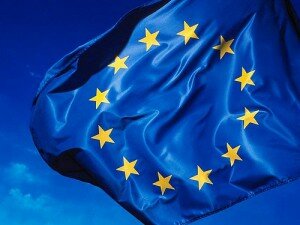State of the Union: (Another call for) More Europe
By Carlos Encinas & Anneke Hermans
 More Europe. That was the conclusion of the debate held after Barroso’s State of the Union speech. A conclusion which – surprisingly- all four big political groups in the European Parliament (the right, the socialists, the liberals and the greens) stood entirely behind. Only the nationalists opposed another call for “ more “Europe.
More Europe. That was the conclusion of the debate held after Barroso’s State of the Union speech. A conclusion which – surprisingly- all four big political groups in the European Parliament (the right, the socialists, the liberals and the greens) stood entirely behind. Only the nationalists opposed another call for “ more “Europe.
A lot of passion, a lot of Europe and a lot of love poured out during the three-hour long debate in the European Parliament. With his speech the President of the Commission tried to ensure and encourage Europeans to keep on fighting for a healthy and strongly integrated European Union. “Europe needed a speech in which all Europeans could identify with and that was the great success of Barroso”, Pablo Hispán, International Relations lecturer at Universidad CEU San Pablo inMadrid, says. “He was able to combine the need of solidarity of the countries with the need of reforms and austerity that the EU asks of these countries.”
EUnanimity
The most intriguing aspect of the debate was that all the big political parties shared Barroso’s opinion entirely despite their own ideals. According to mister Hispán, there are two major reasons for this unanimity. “First of all, Barosso knew how to go through its intervention. He knew how to coordinate most of the worries and preoccupations of the political groups. And on the other hand, it was evident that the European Parliamentarian Groups were going to agree to a high voice and institution in the European Union.”
Other European views
The enthusiasm of the leaders of the bigger political groups was dashed by the conservatives and nationalists. Jan Zahradil, Czech politician and member of the European Conservatives said that he didn’t share Barroso’s views. According to him, people already had lost confidence in the institutions and offering them moreEuropewas just ridiculous. Mister Zahradil also quoted a recent poll, according to which- people no longer liked the idea of a federal Europe. He said this was no propaganda to prove his point, but just an example of people having an opinion.
No democracy
Nigel Farage, British UKIP - member, called mister Barroso a former communist and reminded him of the fact that he was not elected by European citizens.
The most exuberant statement was the one of the British UKIP – member Nigel Farage. In his speech, he called mister Barroso a former communist and reminded him of the fact that he was not elected by European citizens. “Mr Barroso was acclaimed, from a list of one candidate, by a majority in the EU’s so-called “parliament”, the number of whose population is that of a small village. This population consists mainly of the pro-EU establishment’s political parties, which the EU and its member-governments shamelessly support through the funding and manipulation of a vast range of “opinion-forming” organisations in civil-society. This population is elected in 27 different national contexts, with 27 different media-circuses and in 22 different languages. It is not democratic because it has no inter-communicating constituency. It is no more than a fake “parliament” designed to camouflage the EU’s essential, structural and functional autocracy.”
Democratic revolution
According to Mr Farage, there is a new democratic revolution sweeping northern Europe. With this, he is referrring to the Finnish Parliamentary Elections in April Earlier this year. This election led to a breakthrough of the party True Finns. A party that is known for its euroskepticism. “What I want is not anti – European. I want a Europe of trade, a Europe of cooperation, but not European integration. In my opinion, we need centralisation of political and judicial powers, and of economic, academic and technological activities, in the EU’s core-states, sucking the peripheral states dry of their financial and human capital and of all their functions other than tourism and military deployment.”
Slowdown of integration?
With these statements, Nationalists like Farage, cast a shadow over European Unanimity. “The greatest enemy in the European Project has always been nationalisms,” says lecturer Pablo Hispán. “In any case, Mr. Farage’s voice is a marginal and minority one in the whole of the European Union that doesn’t reflect the opinion of the British, even because he himself hasn’t had institutional representation in his own country. The tension between the European integration project and the cooperation’s one has always existed. Depending on its success and the European institution’s ability to lead, European citizens have been more or less mobilized. Anyway, nationalist and populist Euroskepticism is, nowadays, a very residual movement that will not slow integration down.”